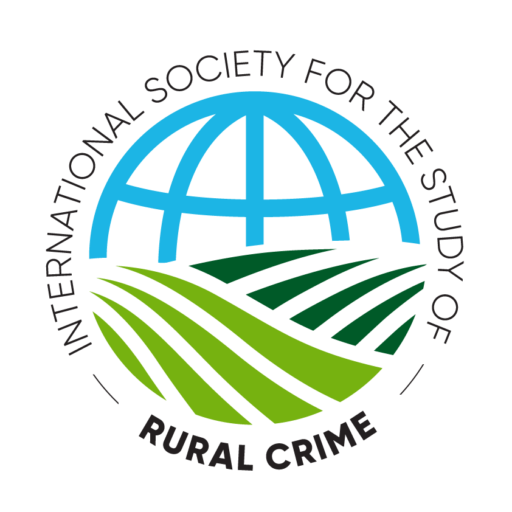ISSRC Blog
This blog provides an opportunity for pithy observations or reflections on topical rural crime news and developments, a summary of research, promotion of publications, advertisements for upcoming events… and more! If you would like to contribute, email a submission of no more than 500 words to admin@issrc.net
European Society of Criminology conference 2019
 The forthcoming European Society of Criminology conference, to be held in Ghent, Belgium from 18 to 21 September 2019 presents another exciting development in the growth of the study of rural criminology. The program contains nine papers with ‘rural’ in their title. And what a fascinating line-up of topics and speakers!
The forthcoming European Society of Criminology conference, to be held in Ghent, Belgium from 18 to 21 September 2019 presents another exciting development in the growth of the study of rural criminology. The program contains nine papers with ‘rural’ in their title. And what a fascinating line-up of topics and speakers!
Panel 6.9 is an entirely rural crime themed panel
Organised and to be chaired by the ISSRC President Joe Donnermeyer entitled ‘Rural Criminology”, it contains four papers:
“Who is involved in (in)formal safety and security networks in rural communities? The results from a focus group interview” – Speaker: Gorazd Meško
“Rural Criminology, Risk Society and the Anthropocene: Some Key Considerations” – Speaker: Matt Bowden
“Stressed and Distressed Farmers in England and Wales: The Psychological Impact of Farm Crime” – Speaker: Kreseda Smith (a member of the ISSRC executive)
“What crimes are committed in rural areas in Poland?” – Speaker: Emilia Jurgielewicz-Delegacz (to be confirmed)
Other rural-focused papers are:
In Panel 1.19 (Developments in homicide research)
“Homicide rate and rurality: Evidence from Russia” – Speaker: Vladimir Kudryavtsev
In Panel 8.18 (Correlates of crime and delinquency 3)
“Protective factors of rural and small-town educational environments – report from research” – Speaker: Maciej Muskała (to be confirmed)
In Panel 8.20 (Perspectives on Crime and Criminal Behaviour 5)
“The International Emergence of Rural Criminology: Implications for the Revision of Criminological theory for Rural Contexts” – Speaker: Joseph Donnermeyer
In Panel 10.23 (Juvenile justice 3)
“Connectors, Horizon Stretchers, Outsiders: A relational study of youth justice practitioners in rural England” – Speaker: Hannah Marshall
In Panel 11.17 (Technology and policing)
“Police body-worn cameras and rural settings” – Speaker: Diana Miranda
2019 British Society of Criminology conferences – rural papers
The British Society of Criminology conference has just taken place in Lincoln, England (3 to 5 July 2019). A very simple search of the conference program for the word “rural” reveals four papers with a rural focus.
Gladkova, Ekaterina (Northumbria University)
“Farming intensification and environmental justice in Northern Ireland”
The paper applies an environmental justice perspective in considering “efficient” (intense) farming practices, and environmental risk to rural communities.
Matthews, Janeille Zorina (University of the West Indies)
“Activist criminology: Affecting public crime discourse to effect better policy”
This paper considers activist criminology ibn the context of a small Caribbean nation, noting that “as much of the existing literature on the social construction of crime is focused on larger urban and suburban spaces, few studies contemplate the experiences of smaller rural spaces or smaller developing countries”.
Morgan, Kirstin (Appalachian State University) and Williams, Marian (Appalachian State University)
“North Carolina assigned counsel fee reduction, caseloads, and outcomes”
This paper considers rural courts in North Carolina, observing that “rural courts often hear fewer cases than traditionally busier urban courts, however their proportional criminal justice resources are often lower, making them some of the most resource stressed courts.”
Scott, John (Queensland University of Technology)
“Criminology and islands”
As with others, this paper notes the high concentration of literature on urban settings at the exclusion of rural and remote places, and considers the emergence of an ‘island criminology’.
Alcohol and Drug use in rural and regional Australia: new report
Colleagues interested in the intersection of alcohol and drug use/abuse with rural, regional and remote contexts might be interested in a publication from The Australian Institute of Health and Welfare entitled ‘Alcohol and other drug use in regional and remote Australia: consumption, harms and access to treatment 2016–17’.
The report’s summary (pp. v-vi) notes that:
- People living in Regional and remote areas of Australia were more likely than people living in Major cities to have consumed alcohol at quantities that placed them at risk of harm from an alcohol-related disease or injury
- Levels of recent drug use were similar between remoteness areas, however the type of illicit drug used varied
- The burden of drug and alcohol use increases with remoteness
- Higher rates of alcohol and other drug treatment outside of Major cities
- Clients who sought treatment in Regional and remote areas were more likely than clients in Major cities to travel 1 hour or longer to treatment services
Citation:
